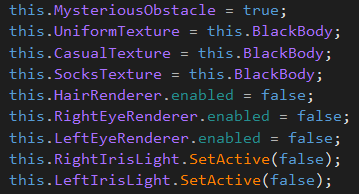
What’s more, depending on the way your POS plan works, you may need a referral from your PCP to see an out-of-network physician.
#3DXCHAT TUTORIAL PROFESSIONAL#
Otherwise, you’ll pay more for healthcare if you choose a medical professional who’s not part of your network. And if you’re on a budget, you may have no choice but to take your primary care physician’s advice. You may not like the specialists who your doctor refers you to. Of course, having a PCP comes with its own set of problems. And while you’re waiting for your claim to be processed, it could take months for you to be reimbursed for covering the cost of your own medical bills. That changes when you seek medical care from someone who’s not in your plan’s network and who you didn’t find via your PCP. If you visit a doctor who’s part of your network, you won’t have to worry about filing an insurance claim or completing very much paperwork. And depending on the way your plan works, you may also be responsible for coinsurance. PPO plan members face the same problems when they stray from their network of providers. Plus, you may have to pay a higher copay than you would if you stayed inside of your healthcare network. That means you’ll probably have to pay a deductible before your insurer will cover the cost of anything. For one, if you decide to receive medical care from a specialist or hospital outside of your network, you’ll pay more out of pocket. There are some drawbacks to enrolling in a POS plan. Related Article: What’s the Average Cost of Health Insurance? What’s more, if you need to pay a copay, it’ll likely be fairly inexpensive (as long as you remain within your network). If you have a POS plan and you only visit doctors and medical facilities inside of your network of providers, you may not have to pay a deductible at all. But POS health plans usually cover a portion of their members’ medical bills, regardless of whether they stay within their network.Īnother advantage of POS health plans is that they can be relatively affordable. Under an HMO plan, your insurance company typically won’t cover the cost of any medical care provided by an out-of-network physician or hospital, unless there’s an emergency.

POS plans aren’t as rigid as HMO plans are.

So it’s possible to receive a mixture of medical care from in-network and out-of-network doctors under a POS plan. Like PPO plans, POS plans provide some sort of insurance coverage to people who visit healthcare providers outside of their network. Under both POS and HMO plans, you’ll need to ask your PCP for a referral when you want to see a specialist or doctor within your network of healthcare professionals. Much like an HMO health plan, POS plans require their members to choose a doctor within their network to serve as their primary care physician (PCP). A point of service (POS) healthcare plan combines some of the features of HMO plans and PPO plans.


 0 kommentar(er)
0 kommentar(er)
